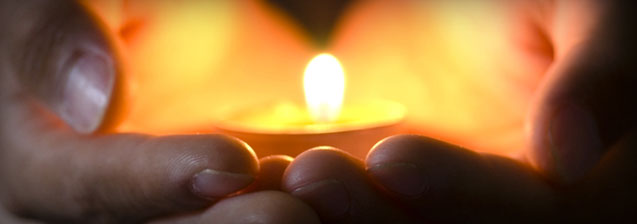
Ali was the last one to see his father before he was executed. Telling his story allowed him to let go of emotions bottled up for 37 years; a step towards healing; a chance to honor his father’s memory and to call for justice. Coming to terms with the loss of a loved one is never easy, but when it is caused by a deliberate state-sanctioned act and there is no place to turn to seek justice, the pain is unceasing. It’s like the victim never existed - devastating to those bereaved and allowing human rights abusers to spread fear and distort or eliminate the truth. In the end, it’s not only survivors who suffer – it is also an assault on the hope for justice for those who have been lost.
At Abdorrahman Boroumand Center (ABC), we created Omid Memorial so that those who have lost loved ones have a place to tell their stories and so that human rights abuses are systematically recorded. Through Omid, we ensure that facts rather than guesswork are the hallmark of the eventual process that determines what went wrong and why, holds perpetrators to account, and prevents abuses in the future.
Ali’s story echoes the inherent tragedy that threads through some 20,000 incidents that ABC has documented to date, each and every one painstakingly recorded in Omid Memorial. For those left behind, each is more devastating than words can describe.
For Ali’s family* the shock of seeing the revolutionary guards throw the bullet-ridden body of his father in the main square of their small town is as new as it was 37 years ago. Ali’s father was a farmer. He was not educated, but he knew everything about fruits and their diseases. He was not only trusted and called upon to mediate between his town’s inhabitants when needed, but he fought for their well-being in the historic rivalry between their small town and a neighboring one over water rights and other issues. He made no secret of his opposition to the revolution.
After the 1979 revolution, Ali’s father was charged, based on hearsay, with having led a protest during which some shops’ windows were broken in the neighboring town. He was sentenced to two years in prison. The rival town, however, was the birthplace of influential revolutionary leaders who wanted him dead.
Just imagine how traumatic it was for Ali and his family, who were still trying to make sense of his father’s baseless two-year prison sentence, to hear the news of his execution from the radio. There was no new trial and no official document to justify his execution.
 Our researchers talk to children, parents, relatives, friends, classmates, neighbors, and cellmates of those who have been executed or assassinated. From experience, we can tell you that no matter what individuals do to survive such loss and oblivion or how many years pass, few really have moved on. We work to help them find a sense of closure now and keep their hope for justice alive.
Our researchers talk to children, parents, relatives, friends, classmates, neighbors, and cellmates of those who have been executed or assassinated. From experience, we can tell you that no matter what individuals do to survive such loss and oblivion or how many years pass, few really have moved on. We work to help them find a sense of closure now and keep their hope for justice alive.
Most of those we interview struggle with feelings that are hard to overcome such as sadness and depression, guilt, frustration, anger, desire for revenge, and fear. Some live in the past to ensure that they do not forget their loved ones. Photos, yearly commemorations, the choice of friends and conversations, the e-mails, passwords, and pen names they choose are all daily reminders of those who are gone; those they couldn’t save. For others the trauma is severe enough that the loved one who is gone is never mentioned. In some cases, family members keep their pain hidden out of fear and to protect the loved ones who remain.
We cannot change the facts for parents who were denied the chance to see their children thrive and have families of their own. We cannot replace the love that was taken away from children who grew up without their parents. But, by reaching out and giving families and friends the chance to tell their stories, we can alleviate their pain and give them hope for justice. With your help, we have made a difference for thousands like Ali and we are keeping hope alive.
Your tax deductible gift today will help make a difference for thousands more. By joining us in our fight to foster truth-telling and seek justice for Ali and his family, you are also laying the cornerstone of a future justice system that protects citizens’ fundamental rights in Iran. *The name and location of this incident were changed to protect the source